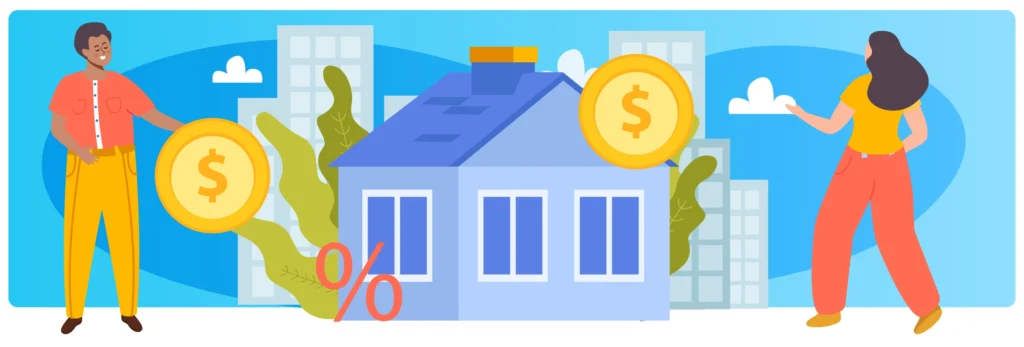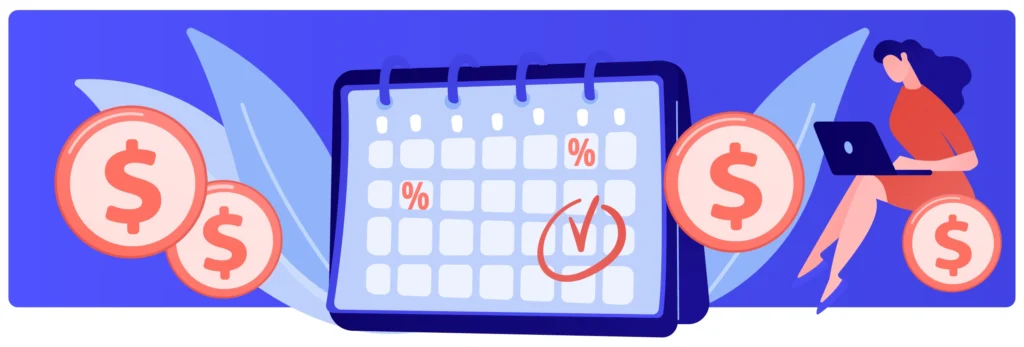Written by Jovan Johnson
A brief summary of selling your annuity:
- Yes, you can sell your annuity, either in full or in part, depending on your financial needs and preferences.
- The process of selling your annuities involves getting a quote, accepting an offer, and completing paperwork—though it’s wise to consult a financial advisor before proceeding due to potential long-term financial impacts.
- Tax treatment varies—structured settlement sales are typically tax-free, while investment annuities may trigger taxes or penalties.
- Annuity riders can impact your cash payout. These add-ons, like income guarantees or death benefits, change the value of your annuity and are considered by buyers when making an offer.
- When selling the full annuity, the buyer takes over premium payments; selling a portion means you may still owe some premiums.
There are two basic types of annuities: an investment annuity and a structured settlement. An example of an investment annuity is when a person seeking to plan for retirement enters into an annuity contract with a financial institution. Under this contract, the owner of the annuity invests funds with the company on a regular basis and the ultimate goal is to be paid a fixed income stream at a later time. Upon “annuitization,” the company holding the annuity contract will make payments to the owner of the annuity, usually on a monthly basis. The other type of annuity is called a “structured settlement” which is a negotiated settlement paid to a person who suffered a personal injury. Under this arrangement, the person is then paid the settlement over a certain amount of time. For example, if a person is injured in a car accident and enters into a structured settlement with the the insurance company, then the injured person would receive periodic payments over a certain amount of time.
Sometimes, for various reasons, owners of annuities will want to sell their periodic payments in exchange for a one-time lump sum payment. This article will focus on the faqs you may have regarding selling your annuity.
Can I sell my annuity?

Absolutely. However, before shopping around for offers, it’s important for you to decide how much money you need. Based on that calculation, you will need to decide whether you should sell all of your annuity or just a portion of it. The market is competitive, and there are are many third party buyers of annuity payments, including us, who are always willing to buy your annuity in exchange for a lump sum of cash.
Why should I sell my annuity?
Many people will sell their annuity because their financial circumstances change and they need money immediately rather than waiting for their scheduled periodic payments. These financial needs can include a down payment for new home, college tuition, or starting a business.
However, it should be noted that selling annuity payments can have major implications to your financial future and retirement, so it is recommended that you consult with an attorney, accountant, and/or financial advisor before moving forward with a potential sale.
How do I sell my annuity?
Don’t be scared, at first the process of selling your annuity might seem daunting. However, in general, selling your annuity is a fairly straightforward process:
1) Contact us (our phone number is on our contact page) and speak with one of our friendly and helpful representatives. They will work with you to gather the necessary information about the value of your annuity.
2) After receiving the necessary details, we will send you a no obligation quote to purchase your annuity. At your request, we will explain the various purchase options in the quote — that is, whether you’d like to sell the entire annuity or just a portion of it.
3) If you’d like to move forward after considering our quote, you would let us know which option you’d like to select and we would then start the sale process.
4) We will work with you to complete the necessary paperwork for the annuity sale. These documents will include an executed copy of your annuity agreement and other related documents.
5) You will also need to sign a sale agreement to authorize us to process the sale for you.
6) The insurance company holding your annuity will receive the sale request and accompanying documents from us. In many jurisdictions, a court will need to approve the sale and will usually ask questions regarding your current medical health and whether you will have the ability to pay for your future expenses if you sell your annuity. Our representatives will work you to guide you through this process.
7) After the transaction request has been approved by the court and your insurance company (or, in the case of a structured settlement annuity payable as a result of a personal injury claim), we will forward you your lump sum payment.
Do I have to sell all of my annuity?
No, you do not need to sell all of your annuity payments. As we briefly discussed above, there are various ways to sell an annuity:
- Sell Annuity Payments for a Period of Time
You can sell a period of your annuity payments, which would involve selling your annuity payments for a set period of time and then you would resume receiving your payments once the period has expired; - Sell a Portion of Annuity Payments
You can sell a portion of your scheduled annuity payments, which involves selling part of each regular payment you receive (this is also known as a “partial buyout”) while you keep the balance; or - Sell All Annuity Payments
You can sell all of your annuity payments in exchange for a lump sum amount of money. This of course is the simplest and most straightforward approach.
Selling my annuity

Do you provide free quotes if I considering selling my annuity?
Yes! All of our quotes are provided free of cost, and you are not obligated to accept any of our quotes. And, of course, we would love your business if you like our offer. You should definitely be wary of any potential buyer that charges some kind of fee in order to provide you with a quote. Reputable buyers will always provide you with free, no obligation quotes to purchase your annuity.
Will the cash you offer for annuity payments be more than others annuity buyers?
While we can’t guarantee that they will be, we will always work to give you the best quote possible! And if you get a better price somewhere else, come back and we will do our best to match or beat it. In any case, we fully believe that you as the seller should only with reputable buyers so that you can get the best deal possible .
Do I have to go to court to complete my annuity sale?
In the event your annuity is a structured settlement, then most likely, yes. Many jurisdictions require court approval before an annuity is sold and the company purchasing your annuity will be able to walk you through this process. During this process, the judge will need to verify that selling the annuity is in your best interest and that neither you nor your family will be placed in financial jeopardy because of the annuity sale. This approval by a court is one of the primary legal protections that ensure annuitants are not taken advantage of. As mentioned above, our friendly staff will be able to help guide you through this entire process.
Expenses when selling an annuity:

Do I have to pay taxes if I sell my annuity payments?
When you sell an annuity, there are usually tax implications if it is an investment type annuity. For example, if you started your annuity for the purposes of saving for retirement, then you will need to pay taxes if you sell the annuity. However, if your annuity is a structured settlement that is being paid out to you from a personal injury judgment, then the sale of your annuity payments is a tax exempt event. Nonetheless, it may be possible in investment annuity situations for you to delay taxes by rolling funds into another like kind product using a qualified exchange. These can be complicated procedures and in such situations you may wish to seek out financial and tax advice. Again, this is another reason it’s crucial to consult a knowledgeable accountant, attorney, or financial advisor before deciding whether to sell your annuity.
Do I have to pay fees when selling my annuity?
When selling your annuity with us we do not charge any hidden fees. We offer a “no surprise” price that is all inclusive of costs, legal fees, profits, and so forth. The up front price we quote you is the same price you receive at closing. Before selling your annuity, you should know that as a part of selling your future payments for a present day lump sum, we apply a “discount rate” that brings all these payments back to today’s date. The discount rate is calculated by taking into consideration things such as future interest rates. A higher interest rate means the less the money you will receive and, therefore, the worse the deal is for you. So, it’s important to know how the discount rate will affect your offer and whether it makes sense for you to proceed with the sale or not.
Resources: Investors.gov provides highlights of fraud that requires individuals pay an advance fee and the possibility of a surrender charge for those who sell their annuity too soon after buying it.
Will annuity riders impact the amount of cash I get when selling my annuity?
Yes, riders can have an impact on the amount of cash you receive when you sell your annuity. A “rider” is an amendment or change to your annuity. Much like an insurance policy, an annuity rider can be added on to guarantee income for you or a loved one or help protect against unforeseen financial difficulties.
An example of a rider is a “medical annuity rider,” which alters your annuity based on health or life events and will provide additional benefits if that event occur. A “death benefit” is a type of medical annuity rider which allows your family to continue receiving annuity payments or take the balance of the annuity as a cash payout. Normally, annuity payments are only made for the life of the purchaser, but a death benefit would continue the payouts after death of the annuitant. As you can imagine, these riders will need to be considered when the potential buyer is formulating their offer.
Are there penalties if I sell my annuity?
Penalties are generally not applicable when selling your annuity. However, as mentioned above, keep in mind that the purchasing company will give you a quote based on a discount rate, and, although not a “penalty,” the discount rate will definitely result in a lump sum that is less than the future value of the annuity.
But, don’t confuse the discount rate with a so-called “surrender fee.” Annuity contracts will often contain what’s known as a “surrender” term, which is essentially a length of time during which you as the annuitant cannot take funds out of the annuity without paying a surrender fee. This is different from the discount rate applied when you selling your annuity to a third party buyer and the two should not be confused.
It is also worth noting that if you withdraw funds from your annuity before before age 59 1/2, you will generally have to pay a 10% tax penalty on the money you withdraw.
Resource: CNN overview of annuity penalties and surrender charges.
If I sell my annuity who pays the premiums after I sell it?
If you sell your entire annuity contract, you won’t have to pay the monthly premiums moving forward. All responsibilities, including payment of monthly premiums, will need to be fulfilled by the company to which you sold the annuity. But, if you sell just a portion of your annuity, then you would still need to make at least a portion of payments moving forward.